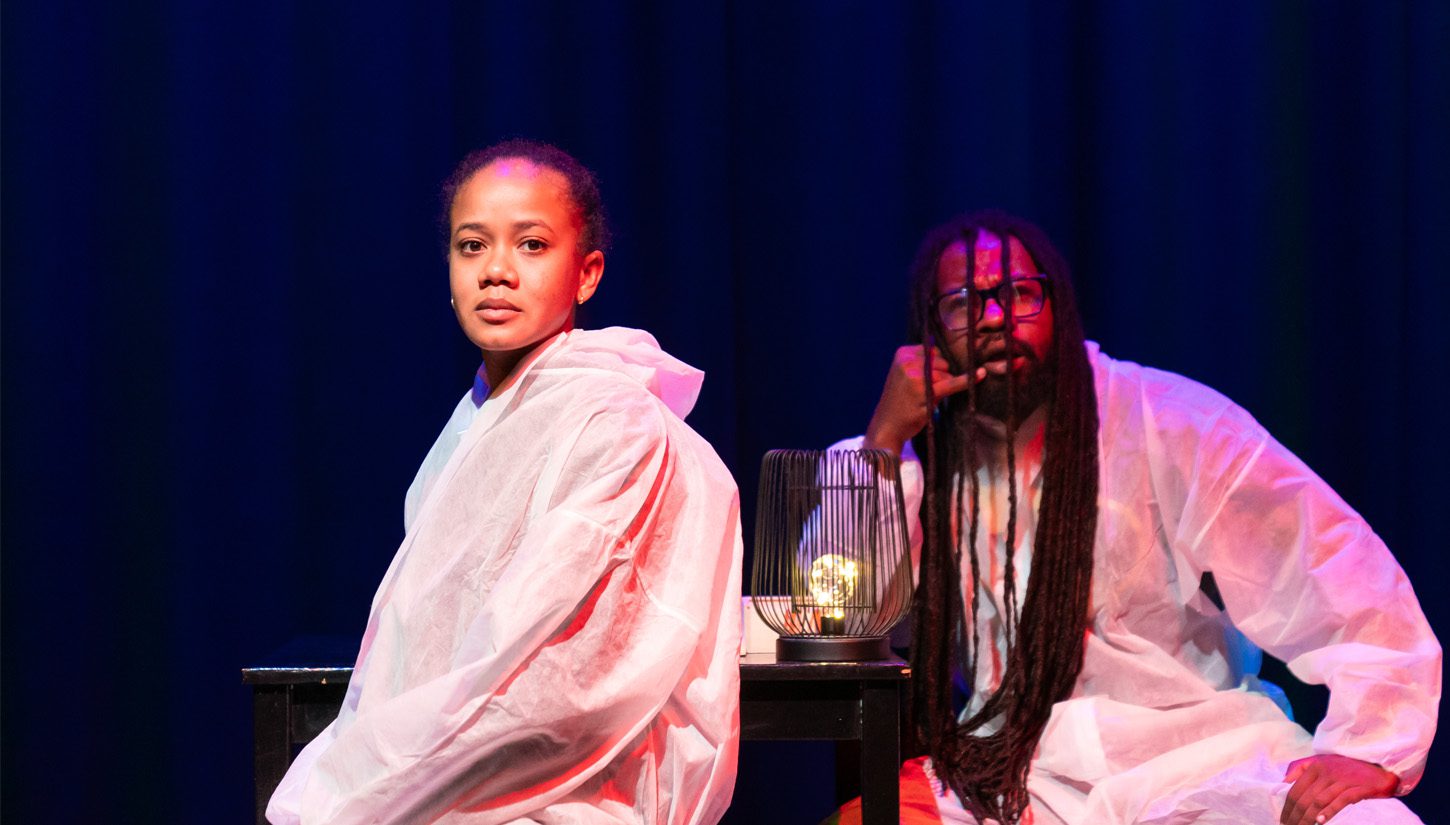Podium Mozaïek
A breeding ground for talented young people

Some have only just graduated from performing arts school. While others will be self-taught. However, they will always be the kind of young makers whose stories have yet to be heard in the theatre. Welcome to Podium Mozaïek and its festival for young makers: RRReuring (‘Buzzz’).
This will be Podium Mozaïek’s eighth year supporting young talents. Their cultural backgrounds are diverse and deeply rooted. They have a story to tell us and these stories take on a form across all disciplines, including theatre, dance, music and spoken word. ‘They are very passionate and dedicated makers who have their own take on the world,’ explains creative producer Trisha de Lang. Along with theatre maker and RRReuring programmer Priscilla Vaudelle, she is always out scouting for new talent to offer a place at the Podium.
RRReuring
Those who are selected will be offered a place in the programme at RRReuring, the festival for new young makers. But more importantly: until that time, the people selected can expect ongoing support. ‘They are given space to rehearse and perform. In the process, we will provide them with individually tailored coaching, for instance by pairing them with a particular director with whom they’d like to work. Everything is aimed at allowing you to explore what you want to make, in which way and for whom.’
Vainergill Thurnim, dance artist

Dancing to make others feel
‘In life, we expect a lot of things. From one another, from friendships, and from ourselves. When these expectations are met – or aren’t – it triggers all kinds of emotions. When you ask people how they feel about expectations, the results are quite extraordinary. At times, you can almost see from their bodily posture that it is a struggle to find an answer. This is the focus of my dance performance ‘That the sun always shines’.
‘At Podium Mozaïek I am given the opportunity to develop that performance and test it out. How can I make the audience experience my intention? And how can I ensure they will make that story their own? With the assistance of an artistic team, I am creating very deliberate choices as I work towards this goal. Audiences too, play a big role in the creative process. People share their stories about what happens to them during the try-outs. That has also really transformed my performance. For example, I’ve left things in which I would otherwise have taken out. This opportunity has taught me a lot of things never to forget.’
Summer Lab
The Summer Lab at Podium Mozaïek plays an important role in this. For four weeks, its studios are at the disposal of several RRReuring creators. De Lang: ‘One arrives with just an initial idea. Another has already made more progress. They work towards the festival with whatever they come across along the way. If a maker is still exploring things and requires the audience’s feedback, we will indicate this during the ticket sales. You need to be allowed to try things out, we don’t need everything to be perfect from the outset.’
Stamp of approval
Makers also receive support to become more visible. ‘In collaboration with each maker, we draw up a list of people whose attention they’d like to grab, like theatre and festival programmers. Then we invite those particular people to attend and provide them with tickets. We have also found that our incubator acts as a kind of stamp of approval. There has already been considerable investment in the development of these makers. ‘There is also great value in the exchanges between the makers themselves. There are about eight participants at each edition. And they often ask one another to come and watch each other’s test performances and to contribute ideas. De Lang: ‘We love to see that. And we also always try to engage former RRReuring participants. Over time, this becomes a community.’
New voices
There are very few production houses left where makers can develop themselves. ‘It is a crying shame when new voices and narratives go unnoticed and unheard. Stories connect people. Were those stories to dry up, the world would be a barren place. We need them in order to develop as individuals and to understand each other.’